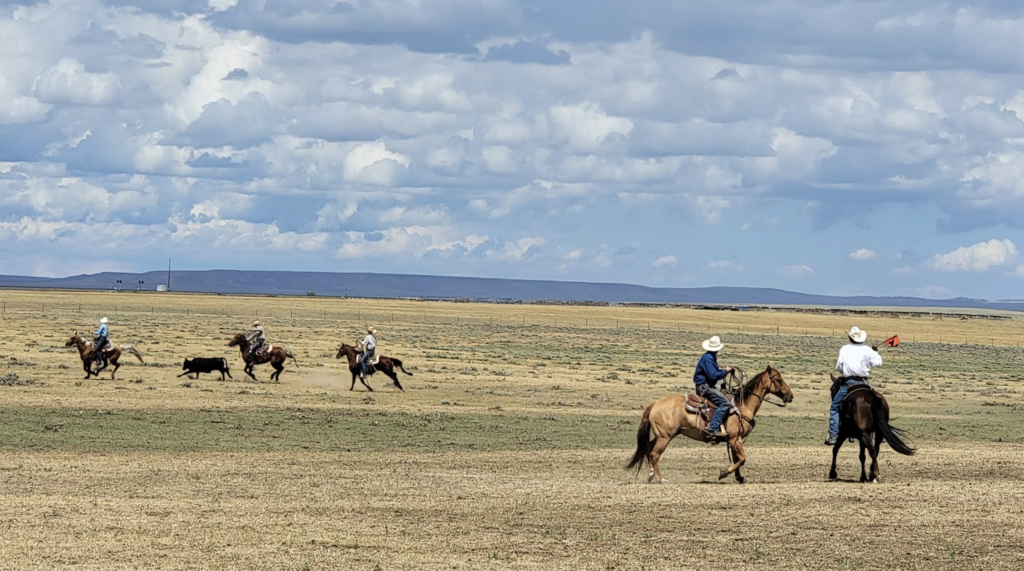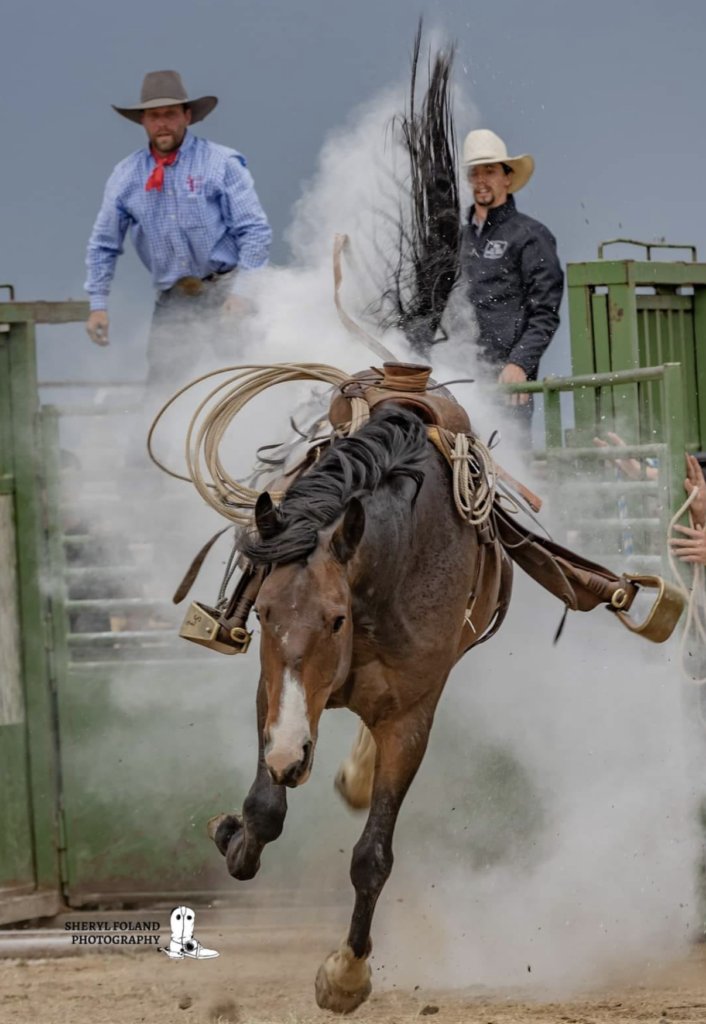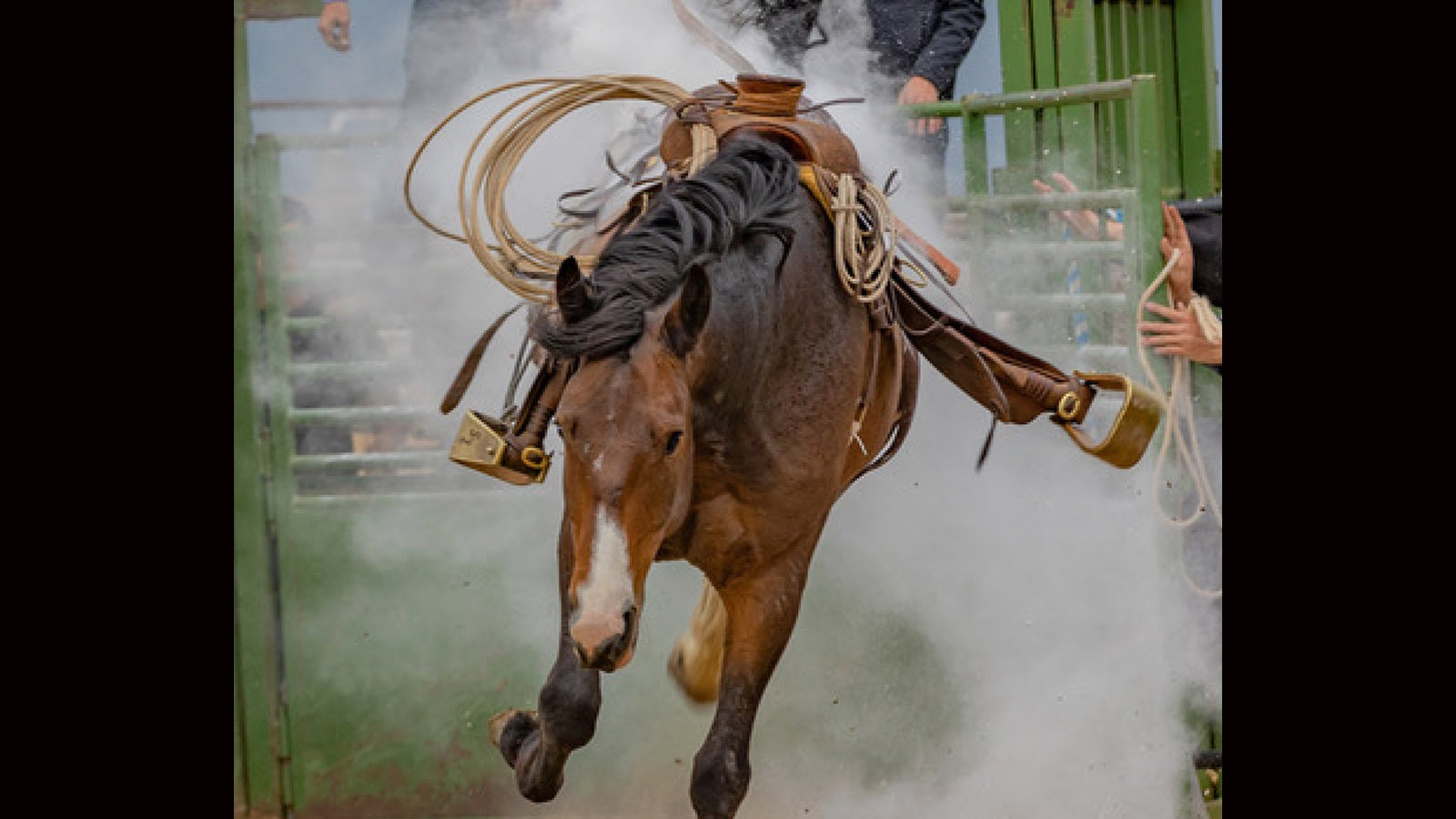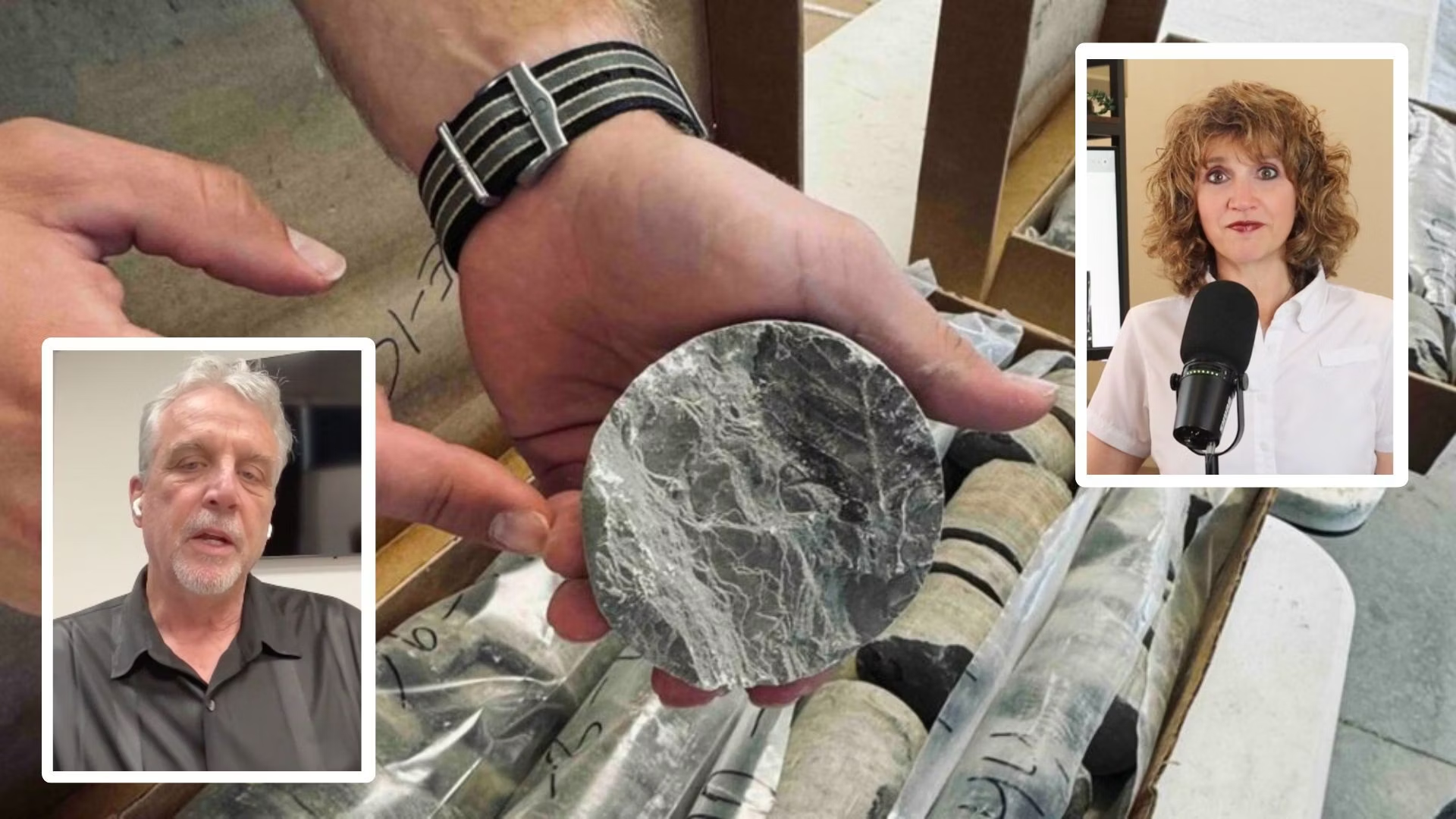By Joshua Wood, tourism/business reporter
josh@cowboystatedaily.com
A bucking bronc at a rodeo is a common sight. What is less common is a bucking bronc spreading the ashes of a rider.
That is what took place during the 3rd Annual Tom Horn Days in Bosler, Wyoming this past weekend as cowboys remembered one of their own.
Jonn Beer, a Montana bronc rider who had competed in last year’s Tom Horn Days, tragically lost his life to fentanyl poisoning in October at the age of 29. The young cowboy left behind his wife, three daughters, a stepson and other family members.
On Saturday afternoon, his ashes were spread at Tom Horn Days using the same horse he had ridden the year before. Originally named W7, the horse was renamed No More Empty Saddles after a group formed in memory of Beer.


Brenda Bowen, who helped Rand Selle of Selle Rodeo Productions start Tom Horn Days, remembers Beer as a quiet and polite person.
“Our first two years, we had several returning bronc riders and Jonn was one of them,” said Bowen. “We would visit maybe a little bit more than some of the others as they were paying their entry fees.”
Following Beers passing, Bowen and Selle discussed marking the passing of the bronc rider at the next Tom Horn Days by bucking a horse with an empty saddle. Beers’ family suggested spreading some of his ashes with the bronc and coordinated the memorial with Selle.
“I think it was a fitting way to pay tribute to somebody who loved to ride broncs,” said Elizabeth Wood, a professional photographer who attended the rodeo. “I think the family did him a great service by allowing that to be done publicly.”
No More Empty Saddles was formed by Rand Selle of Selle Rodeo Productions and others involved with Tom Horn Days. The goal of the organization is suicide prevention within the rodeo and agricutlure communities. One of the members is Sheryl Foland, a rodeo photographer and mental health provider in Rawlins.


The stigma around mental health is a major barrier for those seeking help, said Foland. Not just in rodeo and agriculture, but across the country.
“We’re better than we used to be about talking about it but in those circumstances of a culture that prides itself on independence and being self-sufficient, admitting that you’re not 100% John Wayne is extremely difficult,” said Foland.
Foland said she will often use Wayne’s films to make a point. John Wayne, or The Duke, is ingrained into the psyche of popular western culture through his films such as “True Grit”, “McLintock” and “The Cowboys”.
“There’s not a single John Wayne movie where he operated on his own,” said Foland. “He always had what we refer to as a pickup man. He had someone in every one of his movies that was standing beside him.”
Pickup men, or pickup riders, play an important role in rodeo. The pickup men typically work as a duo in bronc or bull riding competitions by providing a safe dismount for the competitor at the end of their ride.
“Everybody’s a pickup man and everybody already has a pickup man in their life,” said Foland. “We just need to know who it is.”
According to the Centers for Disease Control, Wyoming has the highest rate of suicide per capita in the country at 31 per 100,000 people. A contributing factor to that number, said Foland, is the isolation in Wyoming and the lack of access to mental health services.
Another factor, she said, is shame some might feel about their mental health struggles.
“Because it is such a small populated state it’s also very difficult to keep secrets. That is also a challenge. If you’re in Houston or Dallas, you’ve got anonymity. Nobody pays attention to your truck in a parking lot,” said Foland. “When you’re in a small town, Burns or Baggs, somebody sees your pickup truck in front of a mental health provider, somebody’s going to ask questions.”
Though the independent culture of rodeo and agriculture will be hard to break through, said Foland, she’s already seen some success. During Tom Horn Days, a young cowboy came into her RV because he needed to speak to someone.
“I spent a half hour with this young person. He just needed a safe place to talk. It gave me an opportunity to listen and to give him some resources,” said Foland. “The cowboys and cowgirls that have reached out have all said that they just needed someone who could understand their world and a therapist from a big city isn’t going to have a clue what being in Wyoming is like.”





